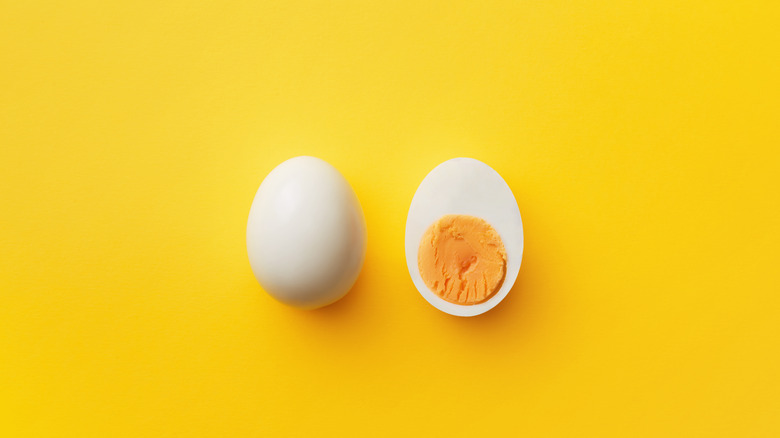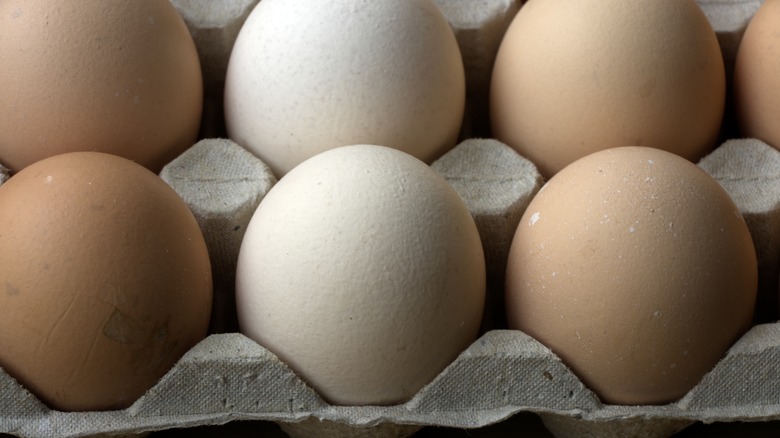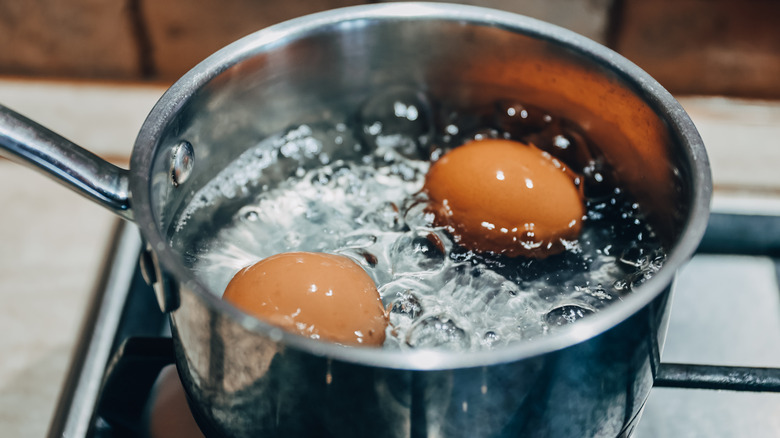What Happens If You Don't Refrigerate Hard-Boiled Eggs?
Hard-boiled eggs are a real workhorse. You can devil them for a great appetizer, chop them and mix with celery, onion, mayo, and mustard for egg salad, grate them over a bagel with cream cheese and salmon, or just sprinkle on a little flaky sea salt for a convenient and nutritious snack.
Hard-boiled eggs are a staple for many people who prep meals and snacks for their busy work week. It's relatively easy to cook a dozen or so at a time, they come in their own handy container, and they're loaded with essential vitamins, protein, and minerals, says WebMD.
But what's the best way to store your hard-boiled eggs? Certainly, egg-based foodstuffs, such as mayonnaise and egg salad, must be refrigerated for safe consumption. Still, if you've ever been to Europe, you've possibly noticed in supermarkets that fresh eggs are kept out of the cold (via NPR). So, what gives? Does cooking the egg make it more susceptible to turning? Does an intact shell protect what's inside, raw or cooked, and, if so, why do we keep even fresh eggs cool in the U.S.?
How do eggs go bad?
Let's look at what causes eggs to go bad in the first place. According to the University of Nebraska's Institute of Agriculture and Natural Resources, a host of factors, from microorganisms to exposure to light and air, lead to spoilage in food items. More specifically, bacteria that are present within an egg's shell are the ultimate cause of rot, but refrigeration will keep the bacterial activity at bay for an exceptionally long time (via Healthline.)
The reason we refrigerate eggs in the U.S. by default, but not so in Europe and many other countries, comes down to how eggs are processed. The Egg Safety Center notes that the USDA requires eggs to be thoroughly washed before sale in an effort to decrease the transmission of foodborne salmonella. While the cleaning does make the eggs safer in some important respects, it also removes the natural cuticle that surrounds and protects the egg. In some European countries, the cuticle remains intact, and salmonella is treated in the laying hens with antibiotics.
How long do hard-boiled eggs last?
It is true that boiling an egg effectively kills the bacteria inside and on the exterior shell, says The Ohio State University College of Food, Agricultural, and Environmental Sciences. That, however, doesn't mean that the egg is now impervious to microbial action. The porous nature of the shell allows bacteria to find its way inside, where it thrives on abundant proteins.
Once you've boiled your egg or eggs, it is critical that you treat them as you would any other food that is susceptible to spoiling. The FDA recommends that peeled or unpeeled, you should consume a hard-boiled egg within one week of cooking.
While you should follow the above guidelines regarding the peel, either way, Glad points out that leaving the shell intact until you're ready to use the egg is a good practice. Though it isn't perfect, the shell still goes a long way towards keeping the egg fresh and delicious.


